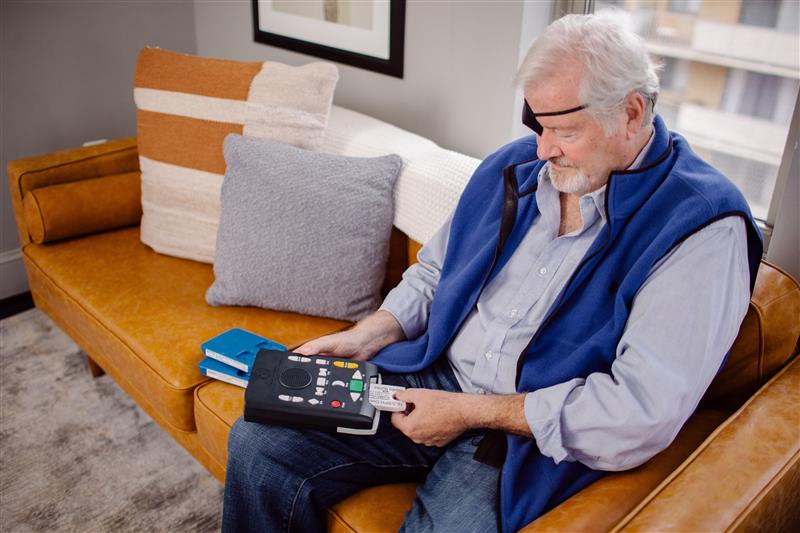Eligibility Criteria For Mississippi Talking Book Service
Individual Requirements:
An individual must meet at least one of the following:
- Cannot see standard-size print due to visual impairment or blindness
- Cannot hold a book or turn pages due to physical disabilities
- Have temporary disabilities due to injury, illness, or surgery
- Have an organic-based reading disability
This includes individuals who have had a qualifying disability from birth, individuals who are disabled because of medical conditions or trauma, and individuals who become disabled as they age. Individuals who are blind or have a print disability and who have been honorably discharged from the armed forces of the United States receive special priority.
Blindness is not the only qualifying condition. Those with low vision due to problems like macular degeneration, cataracts, or other issues are eligible. Physical conditions such as missing arms or hands, lack of muscle coordination, or prolonged weakness are qualifying conditions when their result is an inability to hold a book or turn pages. Persons with medically certifiable reading disabilities, such as dyslexia, and institutions serving clientele with qualifying conditions are also eligible.
Institutional Requirements:
Reading materials and assistive reading devices may be loaned to institutions, such as nursing homes, rehabilitation centers, hospitals, and schools for the blind, for use by qualifying persons only. Mississippi institutions or agencies providing service to clientele with qualifying disabilities also qualify for service.
Applications:
An application may be downloaded from the link below or obtained by contacting the Talking Book Service department at 1-800-446-0892 or talkingbooks@mlc.lib.ms.us. Applications may be mailed, scanned and emailed, faxed, or returned in person.
Applications must be certified on the last page of the application by a certifying authority. A certifying authority is defined to include doctors of medicine; doctors of osteopathy; ophthalmologists; optometrists; registered nurses; therapists; professional staff of hospitals, institutions, and public or welfare agencies (e.g., social workers, case workers, counselors, rehabilitation teachers, and superintendents) and librarians. In the absence of any of these, certification may be made by any persons whose competence under specific circumstances is acceptable to the Library of Congress.

